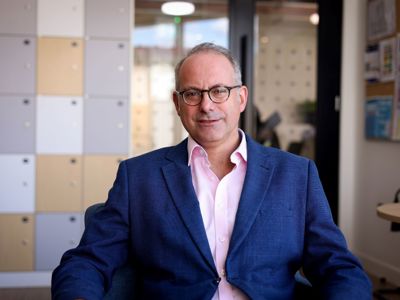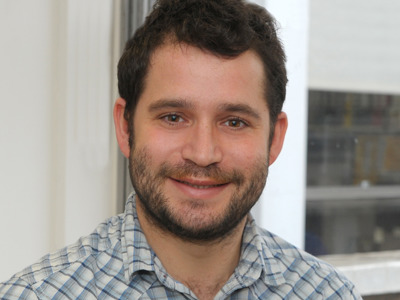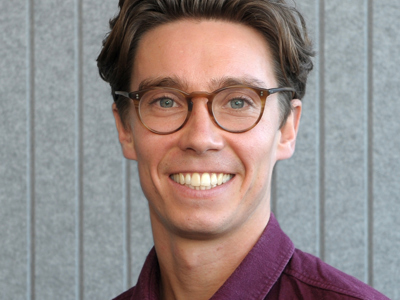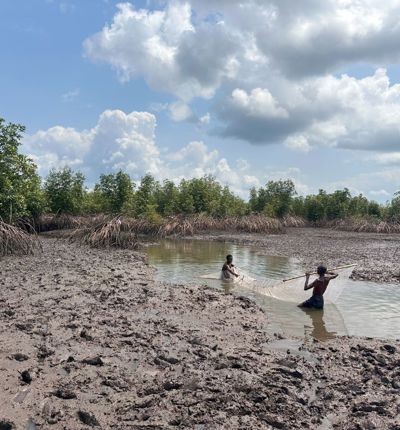
High Court trial into Shell’s massive oil spills concludes after hearing evidence the oil giant failed to disclose key documents and failed to stop oil flowing for months
The trial of oil company Renaissance, formerly Shell Petroleum Development Company of Nigeria Ltd, over claims Shell has failed to adequately clean-up two massive oil spills in the Niger Delta in 2008 has concluded at the High Court on London. Judgement in the trial has been reserved.
Posted on 19 June 2025
The oil spills by Shell’s then-Nigerian subsidiary SPDC, were estimated by one of Shell/Renaissance’s own witnesses to have spilled around 600,000 barrels of oil into the local environment. The project director of the clean-up stated the damage from the spills is “by far the largest to have ever occurred worldwide” and caused the “largest loss of mangroves from any oil spill event in history.”
Experts say that despite knowing of the major ongoing leaks Shell continued to pump oil through the pipeline for a total of around five months.
During the trial, experts for both parties agreed that the target level for reduction of toxic oil contamination which the cleanup would achieve was too high. The Court also heard evidence that letters sent to Shell by a Nigerian regulator informing them to further reduce oil contamination levels were not disclosed to Shell’s cleanup director and the Bodo community.
Lawyers for the community argued that despite the regulator’s requirements, Shell continued working to the same flawed methodology and presented data to the regulators which they knew was inaccurate, exposing the Bodo Community residents and fishermen and women to health risks for decades to come.
In 2014, Shell admitted liability for the spills and agreed to a clean-up operation as part of a £55m settlement with the Bodo community. Shell says the clean-up operation, the largest of its kind in the world, is almost complete and has been a success.
In their closing submissions, Shell/Renaissance defended the cleanup methodology, stating that the cleanup to date had reduced oil concentrations and that planting of mangroves would restore the ecosystem and further reduce the pollution. They argued that the oil spills were not as large as the claimants’ estimates and that remaining oil in Bodo was a result of subsequent oil spills, including from its own pipelines and as a result of illegal oil refining.
However, the trial heard expert evidence that Shell’s cleanup relies on testing that significantly understates contamination levels and does not protect children from health risks as Shell’s cleanup operation has not achieved levels considered to be “safe” for children and adults, who regularly fish in waterways in the area and come into direct contact with the pollution.
The trial heard how the Bodo community claim that the clean-up, which is still incomplete after 17 years, has been slow and ineffective. Experts giving evidence for the community estimated that only 7% of the oil has been removed from the ground and say significant contamination remains, posing a serious public health risk to more than 30,000 people in the area. It is estimated that under Shell’s cleanup plan, which uses mangrove planting to reduce contamination levels through natural processes, cleanup will not be complete for around 50 years.
The community is asking the High Court to order Shell/Renaissance to carry out further clean-up to fully remediate the harm caused to their environment in a shorter timeframe.
The Bodo community’s legal claim is being brought against Renaissance Africa Energy Company Limited (RAEC), which was formed after Shell sold its Nigerian subsidiary Shell Petroleum Development Company of Nigeria Limited (SPDC) in March 2025.
The Bodo community is represented by the Leigh Day international team led by partner Daniel Leader and solicitors Stephen Bilko and Alex Wessely who have instructed Jeremy Hyam KC, Joanna Buckley, Emma Foubister, and Hayley Webster.
HRH King John Bari-Iyiedum Berebon, Paramount Ruler of the Bodo Community:
“We are heartened that the High Court has heard evidence during this trial that supports our belief that the oil companies responsible for these spills have failed to properly clean-up their own mess.
“The horrendous oil pollution in and around Bodo has destroyed our environment and ruined our livelihoods. Unless a full and thorough clean-up is ordered by the court, the lives of our people are set to be blighted for generations to come. More than 17 years after these devastating oil spills took place, we hope and trust that justice will finally be delivered by the High Court and a full and thorough clean-up will be carried out.”
Leigh Day international team solicitor Alex Wessely said:
“The trial has heard evidence has from Shell/Renaissance’s own witness that these oil spills are by far the largest to have ever occurred worldwide and have had a devastating impact on the local environment and the people of Bodo. On top of that, it has emerged in evidence that Shell/Renaissance only recently disclosed documents which showed that they should be conducting a more thorough clean-up than they have been doing.
"Our clients believe Shell/Renaissance has failed to properly clean-up these devastating oil spills, putting the health of more than 30,000 people in the Bodo area, including many children, at severe and ongoing risk.”
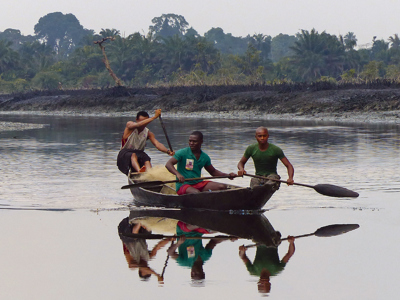
Shell - Bodo
Leigh Day took the case of the Bodo villagers to the High Court in London, four months before the case was due to go to trial, Shell agreed a landmark settlement for £55 million


